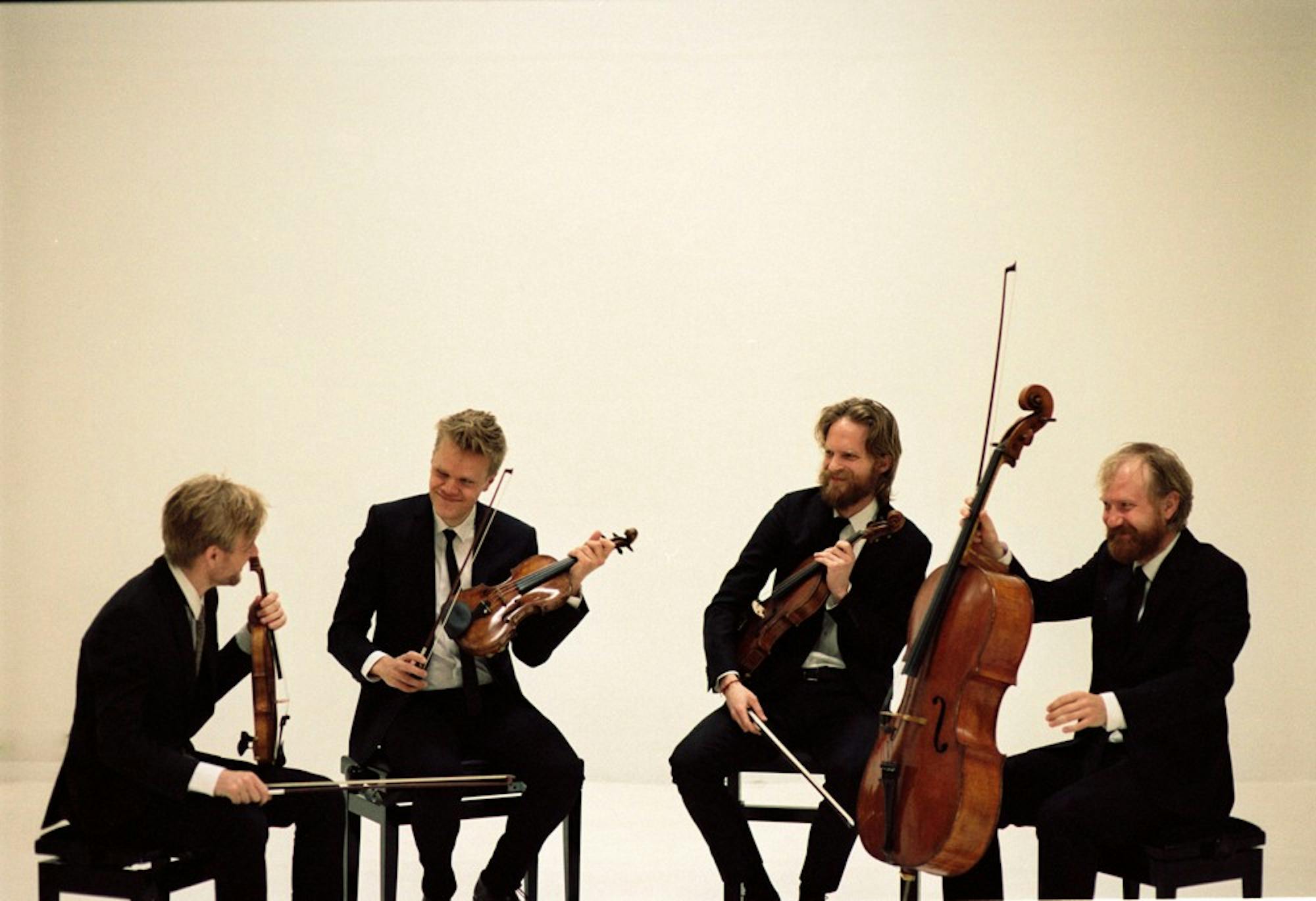The Copenhagen-based Danish String Quartet, which has garnered popular appeal thanks to its members’ beards, hipster-esque style and line of craft beer, seems to thrive on surprising combinations. Consisting of violinists Rune Tonsgaard Sørensen and Frederik Øland, violist Asbjørn Nørgaard and cellist Fredrik Schøyen Sjölin, the quartet was appointed to the prestigious Chamber Music Society of Lincoln Center Two programme in the 2013-2014 season, and was the recipient of the Carl Nielsen Prize in 2011, which is Denmark’s largest cultural prize. Tonight, it will perform at the Hopkins Center for the Arts, bringing its technical prowess and unique personality to Dartmouth.
The Hop director of programming Margaret Lawrence said that she had pursued hosting the quartet for a performance at the College for the past three years.
“They’re a young group, but they have an extraordinarily nuanced understanding of the classical repertoire,” she said. “They’re playing with freshness and excitement, and they have a personal understanding with each other that go way back.”
The three Danish members, Sørensen, Øland and Nørgaard, have known each other since they were teenagers, when they met at a summer music camp run by the Danish Amateur Orchestra Association. Sjölin is Norwegian. Lawrence said that the personal understanding between the musicians allows a unanimity in their approach to the music that they play.
“They don’t draw a line between classical and other kinds of music,” she said. “They’re part of a new generation that is increasingly breaking down barriers between different types of music.”
At its performance tonight, the quartet will be playing Beethoven’s String Quartet in E minor, Op. 59 No. 2, ‘Razumovsky,’ as well as Norwegian composer Rolf Wallin’s Swans Kissing and arrangements of Nordic folk music.
“In many ways, [the folk music] belongs on the stage alongside classical works,” Lawrence said. “Hearing non-classical music alongside classical musical gives insight to the older work, while the classical work can also provide insight to the folk music.”
Sørensen said that he enjoys playing a diverse program and that using their own arrangements of the folk music allows them to provide a more personal touch to that part of the performance. Although the Beethoven piece is not as personal, Sørensen added that the quartet hopes that its performance will project the same emotions that its members feel when listening to Beethoven.
“The hope is that there will be something for everybody, and while some people might come for Beethoven, they’ll hear the folk music and hopefully enjoy it, and it might be the other way around as well,” Sørensen said. “There’s a little bit of everything.”
In addition to its performance, the quartet also engaged in an open chamber master class with Dartmouth music students on Monday. Øland and Sjölin, the two players present at the master class, provided constructive comments to violin and cello players.
Music major and cello player Eddie Pyun ’18, who played as part of a student quartet at the master class, said that the Danish String Quartet had actually recorded its own version of the Beethoven piece the student quartet had performed. Because of this, Pyun said that he was excited to receive comments from the musicians on his playing.
“I had never heard of this group until I looked up the recording of this piece, but they’re the first ones to show up on YouTube, and every single other recording paled in comparison,” Pyun said. “What really sticks out about them is that in today’s world of classical music, playing well isn’t good enough, so I really appreciate how — as we’ll see in their concert tomorrow — they stay close to their Scandinavian roots.”
The quartet followed the master class with a dinner at East Wheelock House, where it played a small performance and engaged in a discussion with students.
Lawrence said that the Hopkins Center attempted to create a personal relationship between the musicians and students.
“[The members of the quartet] are not stuffy artists; they’re very personable and laid back,” she said. “Visiting artists can have [students] think differently about [what] they’re playing and evolve in the space. It’s a real opportunity to learn in an intimate setting.”
In the master class, Pyun said that a particularly instructive moment was when Øland asked the students in Pyun’s quartet group to play with their eyes closed in order to eliminate the visual stimulants.
“It was very counterintuitive instruction because in a small ensemble, we place a high premium on visual cues for communication,” Pyun said. “But once we played with our eyes closed, it seemed like the music gained a fluency that we hadn’t been playing with before. It was revealing all of our visual communication as obstacles.”
Pyun said that as an aspiring professional musician, he was excited to discover the challenges of the Danish String Quartet’s musical journey and any advice they might be able to give to students.
Nørgaard said that he hopes students will be able to walk away from the quartet’s performance with a feeling of having been part of a community engaged with the same music.
“[The program] has everything, from folk music to Beethoven, so hopefully students will walk away curious, happy and fulfilled in the musical traditions,” he said.
The Danish String Quartet will perform in Spaulding Auditorium tonight at 7 p.m.




